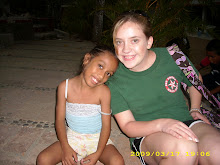E.B. White's
Charlotte's Web is one of my favorite books. I think it teaches readers of all ages the importance of friendship and loyalty and also how to cope with the harsh realities of life such as death. A child like view for readers of all ages is created through the third person narration style of the book. Although it is told in third person, much of the action follows the inner thought processes of Wilbur which makes the novel interesting and easy to follow. The setting of the book, a farm in what appears to be 1950's America, is important to the themes addressed. The setting of a farm, where life and death are accepted as matter of nature, allows White to fully explore themes of mortality and the natural order of things in a way that is relatable to all. I feel that the ideas of friendship and loyalty are central to
Charlotte's Web. The first example of friendship that White provides is that of Wilbur and Fern. This relationship is more of a mother/child one, though Fern does show a great deal of loyalty toward Wilbur throughout most of the book. Their relationship paralles the one between Wilbur and Charlotte. The main way that these relationships are similiar is that Charlotte is quite motherly toward Wilbur several times throughout the book, as Fern is. However, Charlotte and Wilbur's friendship is stronger than the one between Wilbur and Fern. THeir friendship is an enduring one. Toward the end of the book, Fern has seemingly seemed to lose interest in Wilbur, focusing her attention on boys and such things that growing girls find important. Charlotte, on the other hand, is always loyal to Wilbur. She does everything in her power to save his life, even if that involves putting her own in danger. She is always there for him to offer advice and to listen and to simply be a friend. I think she is the first non human heroine we have encountered in our readings this semester. As a heroine, Charlotte is able to save Wilbur's life, and teaches him how to live his life without her. Her death is not a self sacrifice; she knew that death was coming for her and she saves Wilbur by following her instincts, being true to her individual self. Wilbur is thrown into a state of panic when he realizes that her life is about to end. However, what he has learned from Charlotte enable him to move on and to take care of Charlotte's children; continuing her legacy.It is written that when her children begin to hatch, Wilbur's heart pounds and he trembles with joy. When all of the spiders are hatched, his heart brims with happiness. He will never love these spiders as much as he loves Charlotte, but because of Charlotte's presence in his life he is able to show love and support to them, and to have love and confidence for himself. I don't think that many children's books deal with the truths of life such as fear of death and death itself.
Charlotte's Web is one that shows the death and the fear of it are parts of life, that love can cure fear, and that love can be strong without being possessive. These messages are important for all readers to learn.
Charlotte's Web will remain an enduring book because of the lessons it can teach its readers in generations to come.
